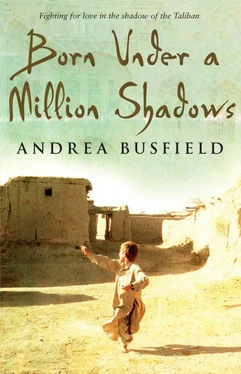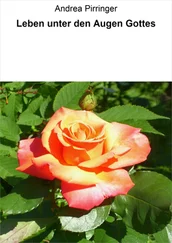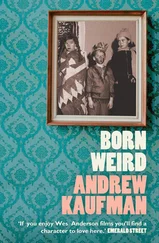Although nobody would have thought any less of him for putting a bullet through Haji Jawid’s head after he was caught running his drugs out of Shinwar and plotting the murders of those trying to stop him, Haji Khan insisted his brother be tried and sentenced, as an example to the people. He then married his bride and everyone rejoiced—even though she couldn’t give him children because her insides were damaged—because it was a true love story and they had become famous in the province.
You see, not only had Aisha Khan risked her life for that of her husband-to-be, she had also converted to Islam, earning her the name of the Prophet Muhammad’s wife (Peace Be Upon Him).
Of course to me she was still plain old Georgie.
 Make a Difference
Make a Difference 
Years of war have left many Afghan children mentally and physically scarred. Many parents have been killed or disabled, whole families have been displaced, and the poor still struggle to make ends meet. As a result, many parents have had to sacrifice their children’s education in order to put them to work.
The nongovernmental organization ASCHIANA, based in Kabul, was founded in 1995 to educate street and war-affected youngsters. And for as little as twenty dollars a month, you can make a very real difference in the life of an Afghan child.
For more information, e-mail aschiana@yahoo.com.auor visit its Web site at www.aschiana.com
 Glossary
Glossary 
afslang for afghani, the currency of Afghanistan
bakhsheesha gratuity, tip, or bribe
bolaniflat-bread stuffed with spinach or potato
bukharia steel or aluminium stove
buzkashia team sport where the players on horseback attempt to place a goat carcass into a goal
chadora headscarf worn by women
ISAFthe NATO-led International Security Assistance Force
ISIPakistan’s Inter-Services Intelligence
kafansheets of clean, white cloth that wrap a body before burial
kafiran unbeliever
kuchia nomad
madrassaa school for teaching Islamic theology and religious law
mantusteamed dumplings filled with minced meat and topped with white yogurt
pakola round-topped hat worn by Afghan men, typically made of wool
patua woolen shawl
Ramazanthe Muslim holy month of fasting more commonly known as Ramadan but pronounced “Ramazan” in Afghanistan
 Acknowledgments
Acknowledgments 
I have so many people to thank whose lives and stories inspired me in a million different ways to reveal a side of Afghanistan that is all too often ignored. In spite of the hardships—and there are many—this is a land filled with laughter and light, compassion and spirit. It is a land that has inspired many before me and will inspire many who will come after. And it is a land that I have fallen deeply in love with.
AFGHAN
First and foremost, I want to thank the family and friends of Haji Abdul Qadir, who showered me with warmth, affection, and good humor from the moment I first set foot on Afghan soil in 2001. Special thanks also go out to my “brothers” Fida and Israr, Haji Daud, Zalmai, Bilal, Tiger, Mustafa Khan, Ahmad, Daoud, Nadar, Pir Hederi, Fareydoon, Pir Bakhsh, Ibrar, Haji Almas, Massoud and family, Monir, Qasi Naeem, Safi, Gulbaz, Bashir, Zaman, Assad, Sayeed, Anwar, Sharab, Sayed Ikram, Koochi, Najib, Mohammad Sharif, and the Mohseni family.
My love and gratitude also go to three very special children who brought a rare magic into my life: Fawad, Ali Reza, and Shabnam. Although the story I’ve written bears no resemblance to their own, these children with their infectious smiles and huge hearts were a tremendous source of inspiration, surprise, and delight. Born Under a Million Shadows is my small tribute to them.
NON-AFGHAN
I have been blessed with some truly wonderful, committed, brave, and beautiful friends whose support, advice, and encouragement helped me turn a dream into a reality. Special thanks go to Frauke, Matthew, Alastair, Jerome, Jeremy, Rahilla, Chris, Tom, Rachel, Tim S., Jo, Nick, Richard, Meghann, Kristian, Marco, Mark, James, Paddy, Tim A., and Dominic.
Elsewhere, I am grateful for the fantastic support given to me by my agent, Charlie Campbell, and his costars at Ed Victor Ltd.; my editor, Helen Atsma, and the team at Henry Holt and Company; and the unwavering love and friendship of Janey and Lucy. Also, all my love and thanks go to my mother, Jean, my father, Mike, and my sister, Louise, who followed this book chapter by chapter.
And finally, I must thank Lorenz—who switched on the light and made me start writing. I love you.

extras…
essays…
etcetera
more author
About Andrea Busfield
more book
About Born Under a Million Shadows
…and more

©Jerome Starkey
Andrea Busfield is a British journalist who first traveled to Afghanistan to cover the fall of the Taliban in 2001. She is now a full-time writer living in Bad Ischl, Austria. Born Under a Million Shadows is her first novel. 
Andrea Busfield’s Kabul Chronicles
Until recently, I lived in Kabul. To the outside world, Afghanistan’s capital was a city creeping into lawlessness. The Taliban had burst back onto the scene with a series of headline-grabbing suicide attacks. According to reports, Kabul’s expatriate community was living in fear, barricaded behind bomb-proof barriers, inside fortified compounds. But the reality was very different. Kabul was fun.
After shaking off the shackles of the fundamentalist regime following 9/11, the capital pulsed with life and possibility. Young men no longer hid handsome faces under fist-length beards. Afghan women were able to walk the city freely, to get an education, and to work for the first time in years. Shopping malls mushroomed, restaurants grew in sophistication, bars opened for business, and Western NGO workers and security personnel descended on the city in their thousands. Afghanistan promised opportunity, tax-free wages, and excitement—and Kabul offered postwar thrills with few of the risks of Baghdad.
In 2005, I applied for and won the post of print editor on the fortnightly newspaper Sada-e Azadi (Th e Voice of Freedom). The publication was a hearts-and-minds exercise financed by the NATO-led International Security Assistance Force (ISAF). The premise was simple: sixteen pages documenting the reconstruction effort in order to bolster support for the government and its military backers. In reality, most Afghans dismissed it for the propaganda it so evidently was and used it to line vegetable boxes and draft y windows. The job was a means to an end—I had been itching to move to Afghanistan ever since I was sent by a British newspaper to cover the War on Terror. From the moment I set foot on Afghan soil, I was hooked; the country was breathtakingly beautiful and its people proud, fierce, and gallant. By the time I moved to Kabul, the place felt like home.
Читать дальше

 Make a Difference
Make a Difference 














